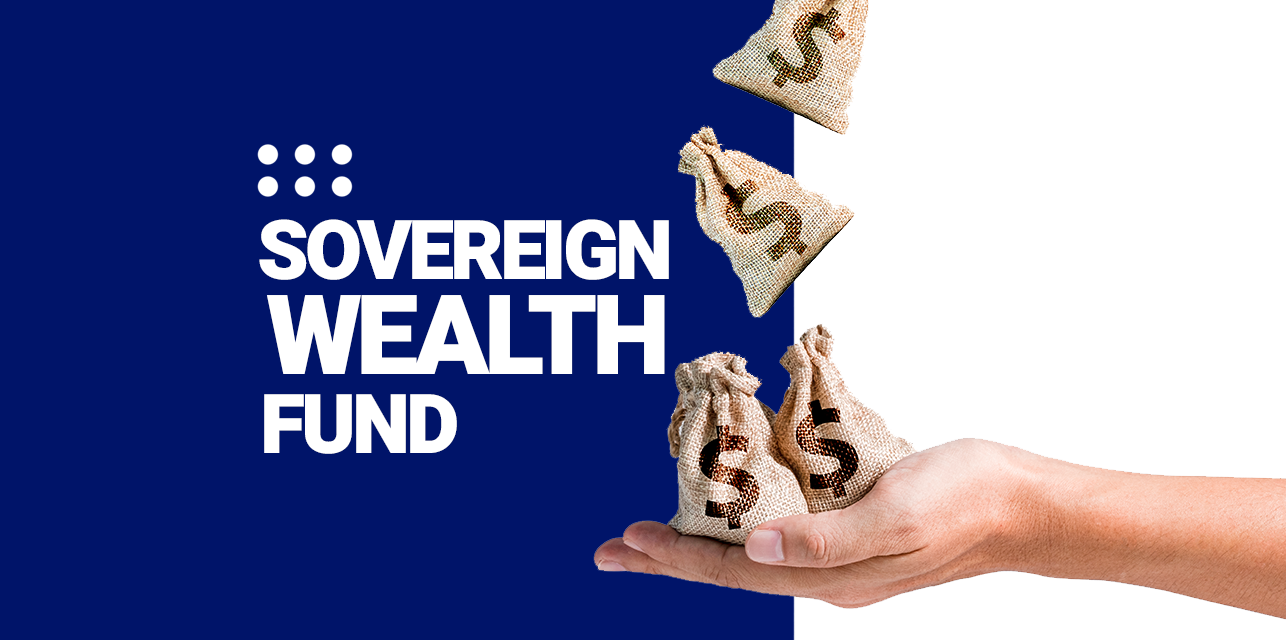Reaping a lot of controversy when it was just a discourse, did not make the government undo itself to form Indonesia's
sovereign wealth fund. To make it happen, President Joko Widodo inaugurated five people as the board of directors in this investment management institution and included capital from the state budget of Rp15 trillion. If you still feel unfamiliar and unfamiliar, here's an explanation of SWF.
Actually, what is a sovereign wealth fund?
Citing Investopedia, a sovereign wealth fund is an investment fund managed or owned by a country or government, this fund is managed usually from a country's surplus revenue reserves. Countries with surplus revenues will invest the surplus into their SWF instead of just being used as a deposit in the Central Bank. The management of SWF funds certainly aims to generate returns like investments. Then, what about the liquidity problem? Countries that are worried about liquidity rather than returns can limit sovereign wealth fund investments to highly liquid debt instruments. The purpose of a country establishing a SWF is usually different because it is highly dependent on economic interests. For example, there is the United Arab Emirates (UAE) which places part of the surplus income in their SWF with the aim that if world oil prices fall and have an impact on income, then investment funds can cover the decline. The UAE itself is one of the owners of the SWF with the largest investment fund in the world, namely the Abu Dhabi Investment Authority. This fund reached US$ 696.66 billion in 2019.
How is SWF developing in Indonesia?
Before President Joko Widodo inaugurated Indonesia's
sovereign wealth fund, Indonesia actually had an investment management institution. In 2007, the Ministry of Finance through the Minister of Finance Regulation Number 52/PMK.01/2007 established the Government Investment Center (PIP). The establishment of PIP itself has referred to
Singapore's sovereign wealth fund scheme, namely the Government Investment Center (GIC) and Temasek Holding, as well as Malaysia's sovereign wealth fund, Khazanah Nasional. The initial capital injection at that time amounted to Rp4 trillion, because it was considered not to develop, finally PIP was liquidated in 2015 and closed through the Minister of Finance Regulation Number 232/PMK.06/2015. Reporting from Katadata, during his visit to the United Arab Emirates in 2020, President Joko Widodo and UAE Crown Prince Sheikh Mohammed Bin Zayed discussed investment cooperation, including a plan to establish a
sovereign wealth fund which will be a 'forum' to place investment funds from various countries, including the UAE which invested 28 billion US dollars. Not only the UAE, Masayoshi Son from Softbank, Japan and the International Development Finance Corporation (IDFC), the United States joined to invest through
sovereign wealth funds.
Then through the decision contained in Government Regulation (PP) No. 74 of 2020 concerning Investment Management Institutions and officially signed by President Joko Widodo on December 14, 2020, Indonesia officially has a sovereign wealth fund called the Indonesia Investment Authority. So, what is the difference between the Indonesia Investment Authority (INA) and the Investment Coordinating Board (BKPM)? The difference is that BKPM is a licensing institution and regulator that functions to take care of investment licensing, not as an investment implementer so that BKPM does not have an investment scheme. Meanwhile, INA has an investment scheme and aims to increase the added value of investment in the long term to support development. Quoted from the Indonesia Investments page, INA can be one of the solutions to overcome investment problems in Indonesia, especially for investors who want to invest in Indonesia but are often canceled due to legal uncertainty. INA itself is part of the Omnibus Law on Job Creation which has been passed and is expected to have an impact on the business and investment climate in Indonesia. In contrast to the Arab Gulf countries that form SWF with capital from surplus reserves, Indonesia, which has always experienced a state revenue deficit, uses the 2020 State Budget funds of Rp15 trillion to become the initial capital of INA. The government itself has the ambition to increase capital in 2021 to amount to IDR 75 trillion. Although it sounds ambitious, by the end of 2020, the government has actually managed to collect investment funds from the UAE, Japan, Canada, and the United States with a value of 30.8 billion US dollars. If all these investment commitments are met, Indonesia has managed to raise twice the investment funds from the initial target. Unfortunately, until now investment funds have not been realized.
Why is INA reaping controversy among the public?
Quoted from Tirto, INA received an initial capital injection of IDR 75 trillion. However, the available cash funds are only IDR 30 trillion, the rest are only in the form of state receivables, goods, assets, and shares of SOEs. So the total capital received by INA is only IDR 15 trillion (coming from the 2020 State Budget). This capital is relatively minimal for investment management institutions such as SWF because more INA capital comes from outside the government. In contrast to SWF owned by the Gulf Arab or Singapore countries whose capital comes from surplus reserves. In fact, the SWF was formed to manage the "
wealth" of a country. Meanwhile, the initial capital to form INA comes from the state budget which has a deficit status, this is considered to be a burden on the state's finances. So it is not surprising that the establishment of a
sovereign wealth fund reaps cons among the public to the point of suspicion. Public concerns are certainly reasonable, referring to Government Regulation No. 74 of 2020, if INA suffers a loss, the government can increase capital. This has the potential to harm the country if INA continues to show poor performance. Not to mention the Indonesian financial sector which is always haunted by mega corruption scandals. Starting from the collapse of a number of banks in 1998 which triggered the injection of Bank Indonesia Liquidity Assistance (BLBI), the Century bank case, to the latest case of Jiwasraya, Bumiputera, and Asabri insurance where the state lost trillions of rupiah. This series of cases sparked public concern when the government formed a sovereign wealth fund that will manage hundreds of trillions of government assets. The Investment Management Institution (LPI) called the Indonesia Investment Authority (INA) is feared to have a similar fate to 1Malaysia Development Berhad (1MDB), torn apart by corruption and money laundering scandals worth billions of dollars. Another problem that is of public concern is the role of the Ministry of Finance which still has the task of managing central government investment as regulated in the Job Creation Law. This means that the minister of finance will participate in the operational affairs of the Indonesia Investment Authority. In contrast to the Singapore SWF scheme, namely GIC and Temasek Holdings. GIC has the task of managing a surplus of foreign exchange reserves to invest outside the Singapore currency, while Temasek Holding is in charge of managing SOEs. So, in these two investment management institutions, the minister of finance clearly only plays the role of a shareholder representing the government. Unfortunately in Indonesia, ministerial positions are often the result of political bargaining, many ministers are affiliated with political parties or interests of certain groups. Even though currently the minister comes from the professional circle. But there is no guarantee that this position will continue to be filled from professional elements. Of course, this will raise issues of trust and institutional independence for potential investors later.
Will INA affect forex, stocks, or commodity investments?
Until now, there is no valid source that says that the Indonesia Investment Authority will have a direct impact on
forex,
stocks, and commodity investments. This means that
sovereign wealth funds such as INA will not have a significant effect on investment and will only affect national macro and fiscal policies. Moreover, forex investment is more influenced by the country's economy or monetary policy of a country whose currency is most traded globally, such as the United States and the United Kingdom. Likewise, gold whose fluctuations are also affected by currency exchange rates and interest rates due to the US Central Bank's decision. Meanwhile, oil price fluctuations are caused by demand and supply as well as world economic problems and political conditions.
Not only the country, you also have to be smart to manage Investments
Want to manage your own investment funds without the help of an investment manager? Don't worry if you're a beginner, GIC has an ecosystem that will help you start from trading platforms,
trading education,
copy trading features, and other features that make it easier for you to invest. Not familiar with GIC? Let's get acquainted. Unlike other conventional brokerage firms, GIC through the GICTrade platform provides a solution for
traders who do not want to be charged with high
trading fees. GICTrade is a peer-to-peer
trading platform that brings together
traders and
market makers. So, what is special about GICTrade? As a platform that brings together
traders and
market makers, you as a potential customer can certainly choose between the two, namely becoming a
trader or a
market maker. GICTrade's role as a transaction venue provider can minimize costs and help maximize profits for
traders and market makers as well as create a fair transaction atmosphere and results.
Traders will benefit from the absence of commission fees and low swap fees and
spreads due to the presence of market makers as liquidity providers. You can also join the
trader community on
GICtrade's Telegram to ask fellow
traders directly about their
trading experience. Also follow
GIC's Instagram to get webinar information and various attractive prizes. In addition, on
YouTube GIC,
traders can also learn to
trade for free! What are you waiting for? Get more features that fully support you to start investing and
trading forex through GIC. Make transactions simpler, safer, and more profitable. Start by creating a
demo account.

 Last:
Last: 






